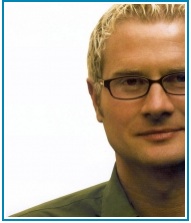
In this series on a Third Way approach to preaching and the teaching ministry of the local church, I have suggested that we need to de-focus from the sermon being the be-all and end-all of education, and I have also argued that we need to develop an outcome based model. That is, all teaching in a church can be subsumed under some overall general “outcomes,” and outcomes are measurable behaviors, attitudes and habits.
One of the issues that arises in an outcome based model is constructing the outcomes, and a huge, huge issue is that they must be organic and owned. Top-down approaches rarely work; guidance and mentoring are the desired approach. So, here’s some suggestions on how to construct outcomes in a local church.
First, and I’m not violating the previous point, the pastoral staff need to spend time in prayer, with the Bible, and contemplating — first individually and then as a group — the big idea outcomes of the local church. The key is to discern and discuss, and then temporarily put to the side what they learn.
Second, the elders (or deacons or leaders) of a local church need to do the above: first individually and then together discovering and discussing what they find. Always the question is: “What do we want our church, together and individually, to be able to do as a result of the educational ministries of the church?”
The pastoral staff observes — doesn’t contribute — the following three discussions.
Third, I would recommend that all Sunday School teachers do the same — perhaps with a Saturday morning breakfast and discussion.
Fourth, I would recommend all parents do the same — and again bring them together on a Saturday morning to discern and discuss.
Fifth, do the same with 20somethings — I need not rehearse my attraction to this group, nor need I discuss how important they are … and you might be surprised what they have to say.
At this point a local church can decide if the congregation has participated. Once the whole congregation has participated, a dialogue can begin between the various groups. The goal is to discern and discuss and then own the outcomes.
The pastoral staff, since it has already been through this process and since it has observed, needs to be the mentor in the final process of determining together the outcomes for the church. A Saturday morning, or maybe more than one, could get all groups together to discuss the top outcomes.
The next question to ask is this: How can we get there? What do we need to do? Etc.

